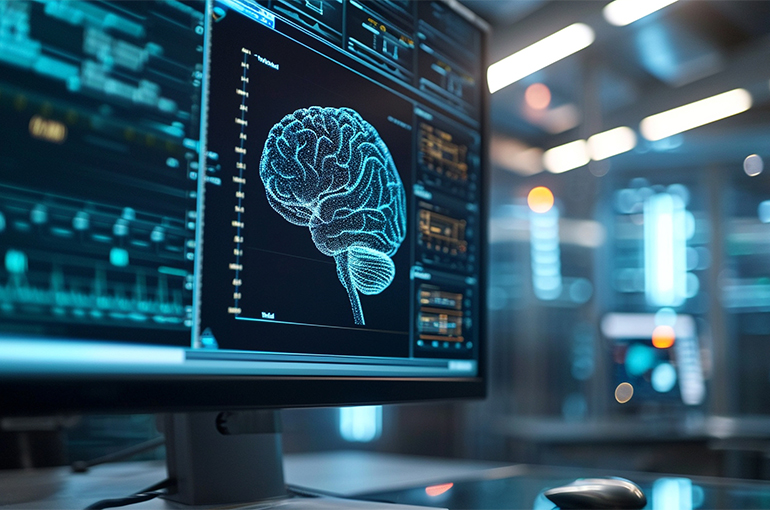 China Needs to Catch Up on BCIs, Expert Says After Neuralink's Human Milestone
China Needs to Catch Up on BCIs, Expert Says After Neuralink's Human Milestone(Yicai) Feb. 2 -- China should improve its engineering prowess and attract international talent to bridge the gap in the emerging field of brain-computer interfaces with international tops, an expert said after Elon Musk's Neuralink implanted its first brain chip in a human.
China should promote a more efficient allocation of resources from all parties in the field of devices controlled by the brain and form unique advantages, Tao Hu, researcher at the Shanghai Institute of Microsystem and Information Technology of the Chinese Academy of Sciences, told Yicai. The progress of Neuralink has clarified the development trend of BCIs, oriented to clinical application to treat major neurological diseases, Tao added.
This week, Musk posted on X that after receiving the startup's technology last weekend, the patient was "recovering well." The California-based neurotechnology firm's goal is to help people living with debilitating conditions, including paralysis, to be able to use a computer just by thinking. Consequently, several Chinese companies published their progress in the field in the following days.
NeuroXess, a Shanghai-based BCI firm, completed its first short-term clinical implantation already a year ago, founder and Chief Executive Peng Lei posted on the same day with Musk.
NeuroXess put in three BCIs in the first half of last year and achieved single neuron spike recording, language decoding and synthesis, and real-time positioning of the patient’s brain areas involved in language processing, which could help surgeons remove lesions while preserving critical brain functions, Peng added.
Scientists at Tsinghua University conducted a clinical BCI trial with a team from Xuanwu Hospital of Capital Medical University in Beijing, the renowned university announced on its website on Jan. 31. The team carried out a minimally invasive procedure to place a BCI called Neural Electronic Opportunity, developed by Professor Hong Bo from Tsinghua, in the epidural space of the brain.
The minimally invasive route or Neuralink's route both have their advantages, Song Enming, researcher at the Institute of Optoelectronics, Fudan University, told Yicai. Semi-invasive devices are less risky than invasive ones and they extract brain signals with greater precision than external devices but their function is limited to cerebral cortex signals so they cannot access higher cognition such as memory and emotions in the deep layers of the brain, Song explained.
Yicai learned that Changzhou-based Neuracle is the manufacturing partner in the Tsinghua project. In December 2022, the BCI startup received hundreds of millions of dollars in Series C financing, according to public information.
Editor: Emmi Laine